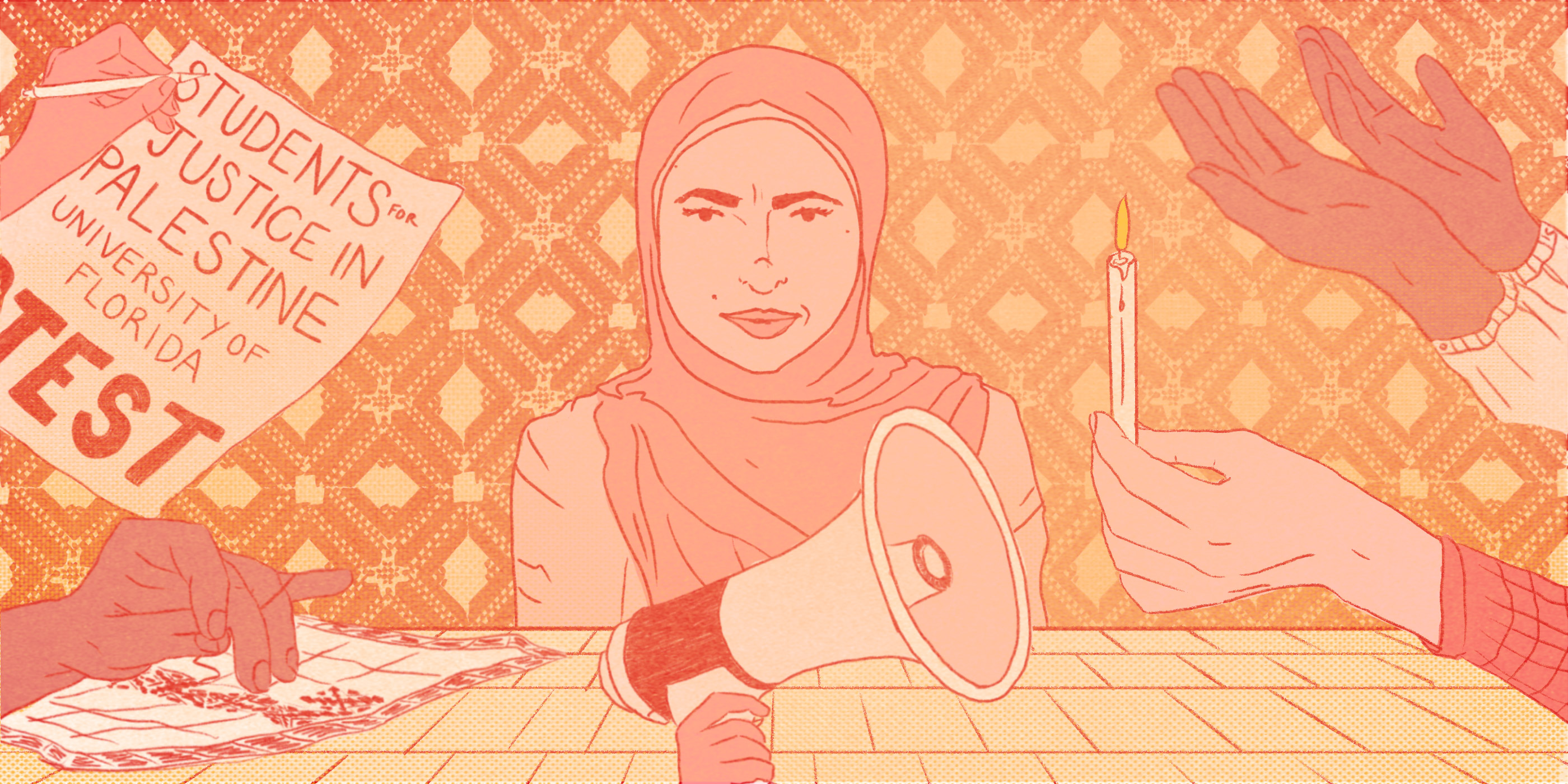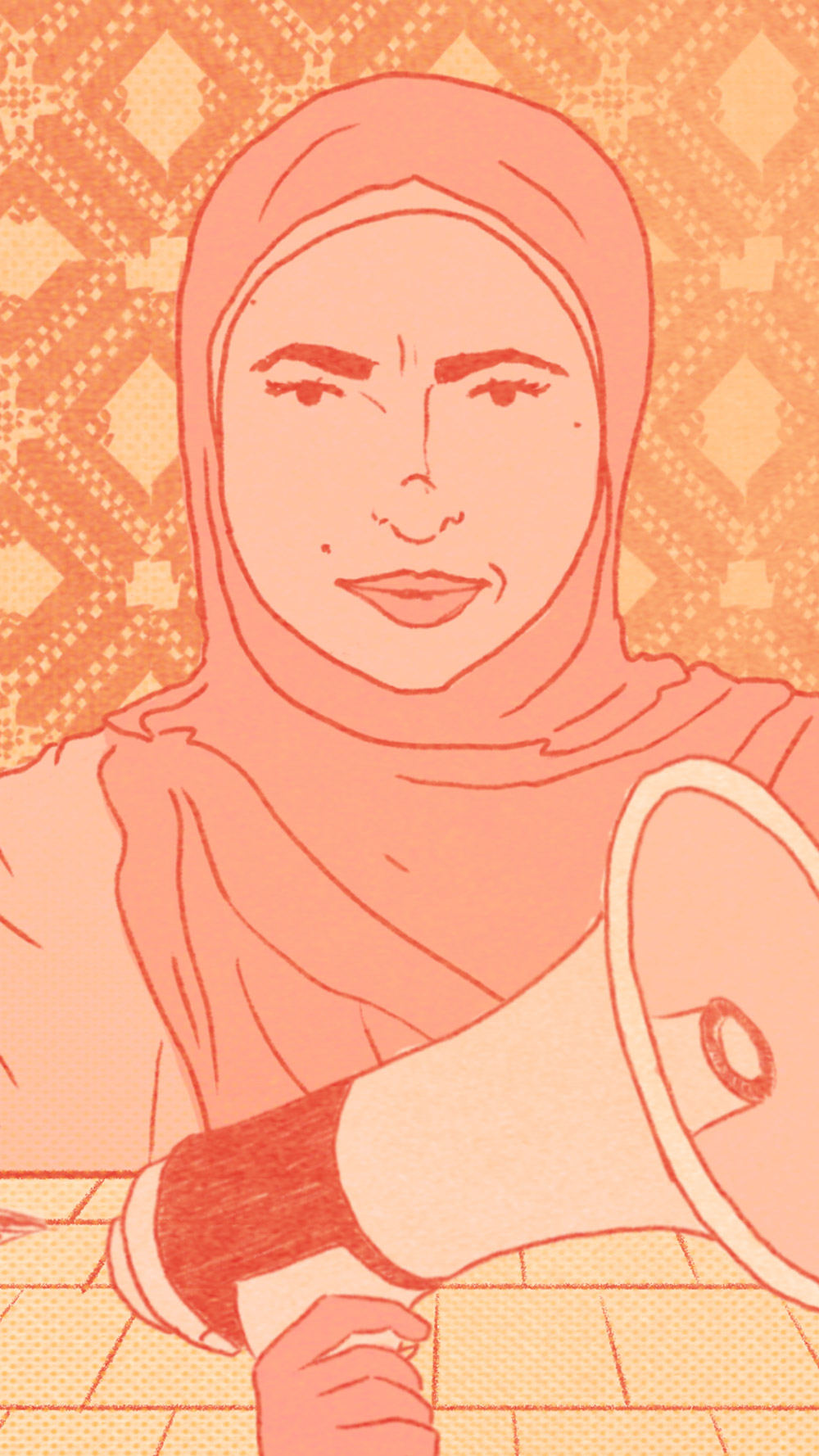A Comic That Illustrates the Fight to Protect Free Speech on Campus


For more than 100 years, the ACLU has defended students’ First Amendment rights across the United States. Since April, more than 2,000 people have been arrested or detained for participating in anti-war protests on campuses across the country. And it’s not just anyone and everyone protesting on campus who’s getting arrested or facing unjust repercussions. Specifically, authorities are disproportionately targeting those protesting for the rights of Palestinian people.
“We will defend anyone whose free speech and association are being challenged and stifled by the government. But especially in this moment, we're not seeing ‘both sides’ be stifled in the same way,” said Allegra Harpootlian, a senior communications strategist with the ACLU. She’s part of the team who helped put this comic series together.
“The majority of censorship and repression has been directed toward people who are supporting the Palestinian people, and that was definitely true in the case of Students for Justice in Palestine at the University of Florida.
The story of Students for Justice in Palestine (SJP) at the University of Florida is so emblematic of attempted censorship, that I made a comic about it, with the help of a team at the ACLU. In it, we aim to provide young people with important information about unlawfully silencing free speech that could apply to them right now. We also want to highlight stories of bravery by students who fought for their rights.
The process of creating the comic began months ago. It’s been a long journey, and for good reason; illustrative journalism – especially pieces that include minors or young people – requires close attention to detail, and careful depiction of a subject. But in this case, I knew it was especially important to consider legality and safety when mixing the story with illustration.
Like I described in the Q&A for the first comic in this series, it’s important for the person or group I’m portraying to feel comfortable with the visual representation I’m creating of them. The students who were a part of the case challenging threats to deactivate the University of Florida’s SJP organization also needed an additional layer of safety: individual anonymity.
Even outside of especially sensitive cases like this one, It’s important for journalists to consider the safety of young people when writing news about them that may leave them vulnerable to negative consequences, which is why I offer the option of anonymity to the demographic more often than not. Young people are taking a greater risk in sharing their difficulties than most older adults – many are yet to begin their public, adult lives. As a journalist determined to bring stories of injustice towards youth and young adults to light, my job is to represent their struggles and victories in a way that helps them and others like them, not to harm their future.
In the past few years especially, activists have been subject to digital attacks that go beyond the verbal, such as doxxing and hacking, which is why protecting the identities of young people was just as, if not more, pressing in this piece. The safety of University of Florida SJP members was a core concern from the beginning of bringing their case.
Harpootlian, the ACLU communications strategist on our comics team, was also part of the group advising the students on safety protocols at the time of the case.
“We know there is no perfect solution to digital privacy, but we also e have a duty to keep our clients safe. We took this case on right around the time that two students had been shot in Vermont, and Florida is a concealed-carry state. It is a state that has had violence against activists,” she said. “We didn't want to put students in harm's way.”
So I did the same. That’s why the comic is set in the first-person plural perspective – the “we” in the panels. In telling stories of struggle and resilience, I didn’t want to single out one student, just for them to fall in harm’s way for telling their story.
It wasn’t a challenge to maintain detail and narrative despite not being able to work with a specific perspective. So much of what these students went through happened with each other – they faced their challenges as a collective.
Collectively, students in the University of Florida’s chapter of Students for Justice for Palestine were afraid of the consequences of threatened disbandment. Collectively, the students – who come from all backgrounds, including those who are not Palestinian, Arab, Muslim, or Jewish – felt the stigmatization of the phrasing used in the that called for the group’s disbandment.
And collectively, that same group of students continued to speak out, despite the pressure that came from, in the words of the judge who oversaw the case, the most powerful person in Florida.
"It wasn’t a challenge to maintain detail and narrative despite not being able to work with a specific perspective. So much of what these students went through happened with each other – they faced their challenges as a collective."
This piece is meant to reflect the perspective of some of the students who make up the Students for Justice in Palestine chapter at the University of Florida. The final panel of the comic displays resolute students continuing to march even after months of threatened repercussions. The panel’s text reads, “Our chapter believes that speaking up for Palestine is speaking up for humanity.”
Despite the arduous experience of taking Florida officials to court, the University of Florida SJP members said they were proud to have fought for the First Amendment rights of all students. At a time when free speech and free expression in schools are under attack across the country, the students at the University of Florida are not alone, and they must not be silenced.


